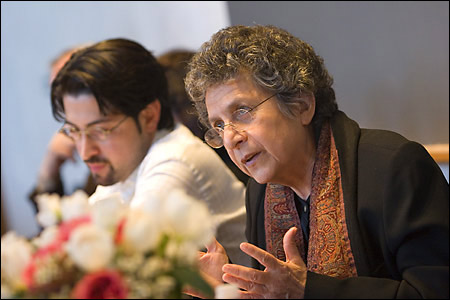Quotable: Leila Ahmed

The passage below is the closing paragraph of “Harem,” by the Egyptian writer and academic Leila Ahmed. The essay is part of her magnificent memoir, Border Passage, and is about three generations of women in her family. It discusses the changes in their lives over a period of a century and a half.
If the women of my family were guilty of silence and acquiescence out of their inability to see past their own conditioning, I, too, have fallen in with notions instilled in me by my conditioning—and in ways that I did not even recognize until now, when, thinking about my foremothers, I suddenly saw in what I had myself just written my own unthinking collusion with the attitudes of the society in which I was raised. Writing of Aunt Farida and of how aggrieved and miserable she was when her husband took a second wife, I reproduced here without thinking the stories I’d heard as a youngster about how foolish Aunt Farida was, resorting to magic to bring back her husband. But I see now how those stories in effect rationalized and excused his conduct, implying that even though taking a second wife wasn’t a nice way for a man to behave, perhaps he had had some excuse, Aunt Farida being so foolish.
“The mind is so near itself,” Emily Dickinson wrote, “it cannot see distinctly.” Sometimes even the stories we ourselves tell dissolve before us as if a mist were momentarily lifting, and we glimpse in that instant our own participation in the myths and constructions of our societies.
The last time I used this essay in a class, a couple of my students appeared stunned to discover that there were feminists in Egypt, much less in 19th-century Egypt. Feminism (by which I mean simply the belief that men and women are and should be equal) had seemed to some of them, I think, primarily and uniquely a Western movement.
Photo: Harvard Gazette.